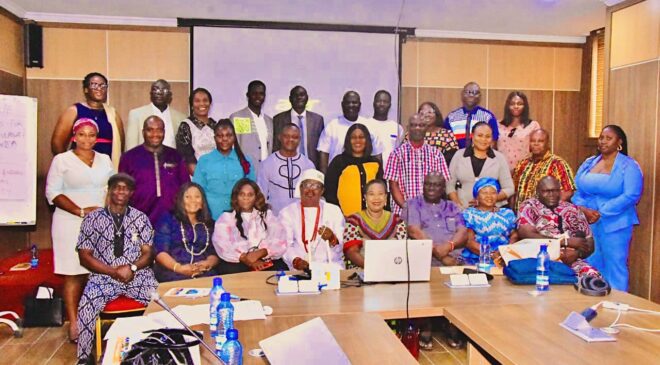
ASABA/Nigeria: A broad coalition of stakeholders has reaffirmed the urgent need for Delta State to diversify its economy and entrench fiscal sustainability, following a one-day validation workshop held on August 19, 2025, at Best Western Elomaz Hotel, Asaba.
The workshop, convened by BudgIT Foundation with support from the ETF and in collaboration with the Community Empowerment and Development Initiative, came on the heels of an earlier focus group discussion and was described as a milestone in engaging stakeholders to develop actionable solutions for Delta’s economic future.
The session brought together representatives of civil society organisations (CSOs), ministries, departments, agencies (MDAs), community leaders, and market associations to critically examine challenges, opportunities, and workable strategies to reposition the state’s economy.
Key challenges identified included corporate social responsibility failures by oil companies, poor road networks, energy supply constraints, and environmental degradation caused by gas flaring. Participants argued that these factors have stifled revenue generation and hindered sustainable growth in oil-bearing and agrarian communities.
Stakeholders, however, identified several pathways for diversification. These include infrastructural development to open rural communities, expansion of the service sector with a focus on tourism and financial services, promotion of ICT skills and innovation, encouragement of small-scale manufacturing and green industries, and the development of mining, power, and energy resources. They also stressed the importance of skills acquisition programs, especially for women and youths, to drive entrepreneurship and employment creation.
The communiqué further recommended a suite of fiscal sustainability measures: strengthening fiscal discipline, promoting transparency and accountability in budget implementation, enhancing community participation in project planning, blocking financial leakages through technology-driven systems, and implementing equitable tax reforms alongside public education on taxation.
Other proposals include sound debt management practices, exploring non-oil revenue streams, equitable distribution of resources, and investment in education with a strong emphasis on digital technology and entrepreneurship.
On practical steps, participants urged government and private stakeholders to prioritize clean water and healthcare access, harness flared gas for power generation, expand transportation networks to rural areas, and tackle insecurity to make the state more investment-friendly. They also called for sustainable agricultural practices to boost food security, robust support for local businesses through grants and mentorship, and stronger governance frameworks to build public trust.
In a joint statement, the organisations and communities represented—including BudgIT Foundation, Community Empowerment and Development Initiative, Ministry of Finance, Ministry of Environment, Delta House of Assembly Committee on Finance, Centre for Peace Warri, and several grassroots groups—called for collective action.
“We urge all stakeholders, including government agencies, industry players, community members, and civil society organisations, to unite in a collaborative effort to implement these necessary changes. By working together, we can foster economic diversification and enhance fiscal sustainability in Delta State beyond oil,” the communiqué stated.
The workshop is expected to serve as a springboard for stronger partnerships between government, civil society, and communities in reshaping Delta’s economic trajectory in line with national and global best practices.
